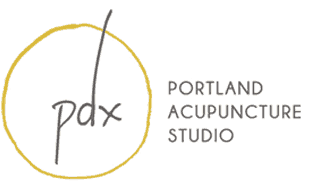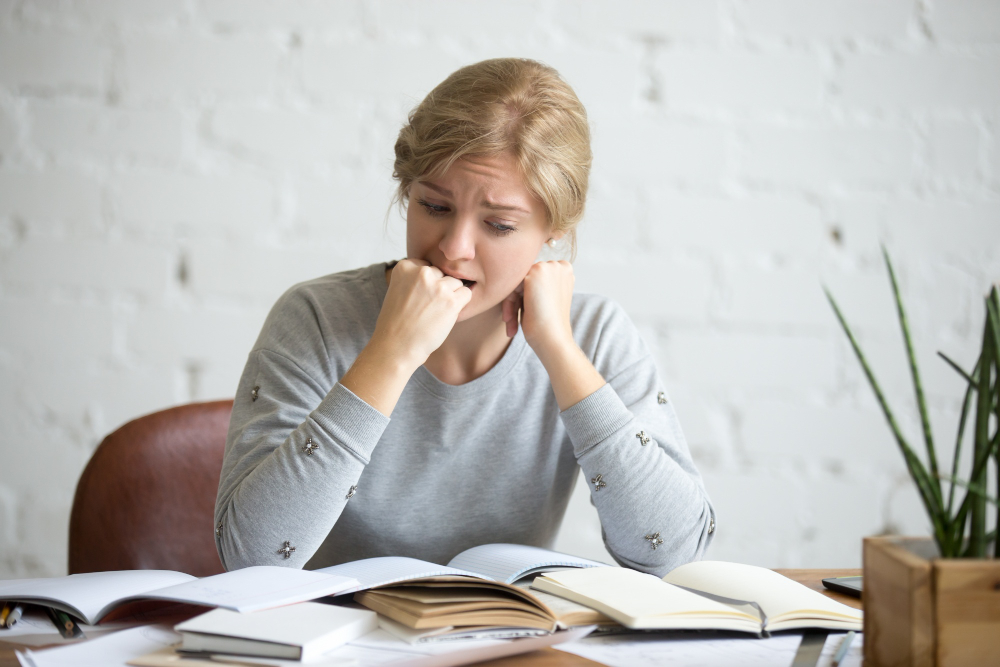Watching the news, summer heat waves, natural disasters, work deadlines, managing the household—life requires us to have positive and negative types of stress. Some of us, though, may also experience anxiety either routinely or situationally in addition to the day-to-day stress. Anxiety may not always be visible to those around you. You may have anxiety with less obvious feelings of heart palpitations, muscle weakness, difficulty concentrating. Or it may be all too visible with difficulty breathing, trembling, and sweating excessively. Whether anxiety is visible or invisible to co-workers, friends, and family members, it may feel all-encompassing and affect every aspect of life.
For people experiencing any type of anxiety, there are many treatment options to try on your own, or with the help of a professional. The options include lifestyle changes, talk therapy, medication treatment, and therapies like acupuncture to connect the mind with the body.
Lifestyle changes can be difficult to adopt but are often recommended as part of healthy self-care. Eating a moderate diet that neither tanks nor skyrockets your blood sugar is helpful for anxiety and depression. Also, adding regular exercise reduces anxiety and depression. Though you may love your coffee, limiting stimulants – or saying no to the second cup in the morning – decreases anxious feelings and reduces the likelihood of palpitations with anxiety.
Talk therapy should be included as part of your approach to managing anxiety when it becomes unmanageable. Mental health counselors, psychologists, and psychiatrists trained in talk therapy can work with you to create a treatment plan and ways to treat or limit anxiety. Some talk therapies may also include ways of creating new behaviors as an approach to treatment.
Medications may be prescribed to limit anxious feelings while creating lifestyle changes, engaging in talk therapy, and employing mind-body therapies. Discuss your medication plan with your prescribing health provider, as some medications may require tapering off before ending the course of medication treatment.
Therapies like acupuncture to connect the mind and body have also proven beneficial for anxiety treatment. Mindful breathing, whether as part of a meditation or gentle movement routine, assists the nervous system’s response to stressors.
Gentle movement with breath, such as Qigong or Tai Qi, connect the mind with the body to promote relaxation. Acupuncture treatment connects the body and mind by reducing the release of stress hormones while calming the nervous system, and most acupuncturists are trained in mindful breathing and movement which can be shared as part of your treatment plan.
To start connecting your mind and your body, here is one example of a mindful breathing practice. Sit or stand in a comfortable position. Allow your neck and shoulders to relax, if you are able.
Feel your feet on the ground or your backside resting on your seat. Now, it is time to slow down your breathing just a bit, again, if it is accessible to you in this moment. Start by inhaling for a count of 4, hold your breath for a count of 2, and then, exhale for a count of 8. If that seems too long, start with counting in your mind quickly and then, allow that count to slow as you relax a bit.
The best thing about this practice, no one even knows that you are doing it, but rest assured, you are making a huge impact on reducing day-to-day anxiety.
Anxiety can have a big effect on your quality of life. Over and over again that our patients improve from just a few acupuncture session. Contact us today to find out how you can live with less anxiety.
Established patients can schedule online, patients who haven’t seen us at Kwan Yin Healing Center call (503) 701-8766, or email us to schedule your appointment.





